Climate
-
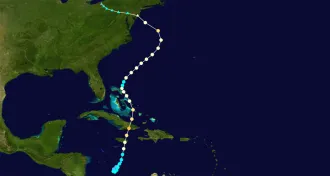 Climate
ClimateNo more Superstorm Sandys expected for a long time
Future conditions less likely to steer hurricanes directly into the East Coast, analysis suggests.
By Erin Wayman -
 Climate
ClimateGlobal warming hiatus tied to cooler temps in Pacific
Average air temperatures' rise has paused, but not stopped, because of normal variation in ocean temperatures.
By Erin Wayman -
 Climate
ClimateFlood damage to cost up to $1 trillion per year by 2050
Coastal cities with growing populations will be inundated by sea level rise.
-
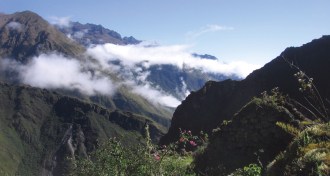 Climate
ClimateClimate change carved canyons in Andes
Erosion came thanks to cooling and more rain, not tectonic activity.
By Erin Wayman -
 Climate
ClimateThe Attacking Ocean
The Past, Present, and Future of Rising Sea Levels by Brian Fagan.
By Erin Wayman -
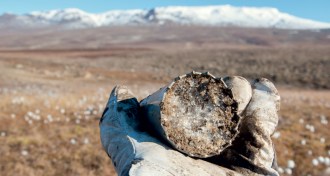 Climate
ClimateWetter permafrost clings to carbon better
In 12-year lab study, moist soil samples released less greenhouse gas as they warmed.
By Erin Wayman -
 Climate
ClimateSouthwest’s monsoon season may heat up with the climate
Warmer temperatures may bring stronger rainy seasons over the long term, study finds.
By Erin Wayman -
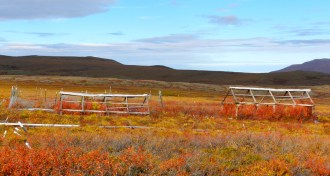 Climate
ClimateWarming may not release Arctic carbon
Element could stay locked in soil, 20-year study suggests.
By Erin Wayman -
 Climate
ClimateCarbon dioxide in atmosphere reaches landmark level
At 400 parts per million, greenhouse gas concentration is now higher than it has been for millions of years.
By Erin Wayman -
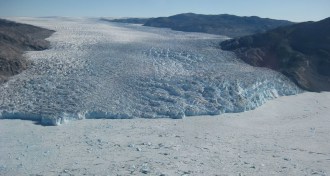 Climate
ClimateIce loss from Greenland’s glaciers may level off
Simulation suggests long-term effect on sea level not as dire as some predictions.
By Erin Wayman -
 Climate
ClimateCuts in some greenhouse gases could slow sea level rise
Methane, ozone and other short-lived pollutants have a big impact on ocean heights, simulation finds.
By Erin Wayman -
 Climate
ClimateRising carbon dioxide means more air turbulence
More jarring flights are likely, simulation suggests.
By Erin Wayman